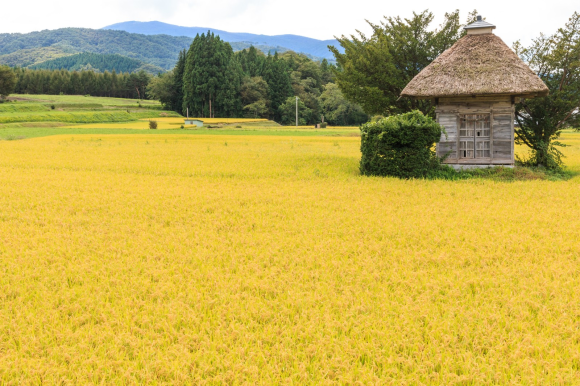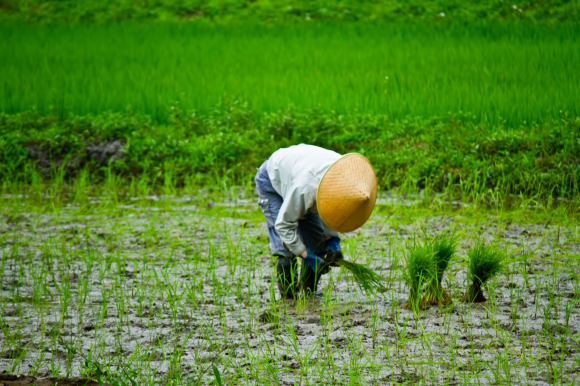Tokyo and Japan’s other large cities are, in many ways, awesome places to live. They’re where you’ll find the majority of the country’s academic and professional opportunities, and also the wealth of its cultural and entertainment options.
But life in Japan’s neon-soaked concrete jungles isn’t for everyone. The Ministry of Land, Infrastructure and Transport recently released the result of a 5,000-person study in which they asked participants if they want the government to put greater effort into programs helping urban residents of Japan relocate to rural areas, and it got the biggest call to action from respondents in the 20-29 age bracket.
Twenty-three percent of participants in their 20s said they wanted greater government promotion for relocation to the countryside, which was five percent more than any other group. That number was even higher among young people living in our around Japan’s three largest metropolitan areas, specifically those centered in Tokyo, Osaka, and Nagoya, where 25 percent of people in the 20-29 demographic said they hoped for more programs to help those looking to move out of the big city.

As to why, experts say a number of young people have become dissatisfied with the ironic isolation that can come with living in a population-dense area. City folk tend to lead busy lives with little interaction with their neighbors, and this lack of a sense of community and personal connections, and in some cases the resultant lack of trust, is commonly cited as a factor by those considering moving out of Tokyo and other major cities. However, the poll’s statistics don’t cover whether respondents envisioning a more interpersonal lifestyle in the countryside are basing such expectations on personal experience living in less populated towns, or simply on beautifully relaxing YouTube montages.
▼ Before you quit your job and start a farm, remember that getting to this…

▼ …requires a lot of time spent doing this.

There are already organizations, with offices set up in major metropolitan areas, that offer advice and assistance to people looking to move to less populous parts of Japan. Local municipalities have also tried such tactics as covering the dating expenses of newly arrived residents or giving them a free house. Still, the young survey respondents want to see even more done, and it’s not just young people living in large cities who feel that way either. 25 percent of respondents aged 20-29 who live in towns with populations under 50,000 also said they want to see more programs to make such moves easier, as did roughly 27 percent of those between the ages of 60 and 79, with such support likely stemming from a desire to prevent rural communities with dwindling populations from becoming too small to sustain themselves.
Of course, if too many people dreaming of small town life move to the same place, it stops being a small town, so while the survey gives the ministry an idea of what people want, it also gives it a tricky tightrope to walk.
Source: Nihon Keizai Shimbun via Otakomu
Read more stories from SoraNews24.
-- Island village in Japan will pay for your dates, give you a cow if you moo-ve there
-- Nearly 40 percent of young, unmarried Japanese people say they don’t want a relationship
-- Survey finds roughly one in four all-night Internet cafe customers in Tokyo is homeless
© SoraNews24 Take our user survey and make your voice heard.
Take our user survey and make your voice heard.















18 Comments
Login to comment
RealCDN
'Thinking' and 'doing' are two different things. The country is great, but to eke out a living requires work. Have not noticed that today's under-30s could handle it.
CruisinJapan
I have a completely different idea, and it involves entrepreneurs and businesses making telecommuting a possibility in this country. Around the globe there are free-lance programmers, graphics designers, writers, and a myriad of other jobs that could be down just about anywhere.
If the private sector takes advantage of modern telecommunications breakthroughs of the last 20 years, Japan may finally join the rest of the world on tele-work and reserve the extreme urbanization trends.
Heck, maybe then there will be more children born each year!! Wishful thinking!
MarkX
RealCDN you beat me to it. It is so easy to think something but to really go ahead and do it, well that is a whole different level. And as these young people think of moving to the "inaka", more and more young people from rural areas are readying to make the move to the city. Not thinking but doing. So smaller cities and communities are dying little by little.
afanofjapan
If i spent a bunch of time hand-planting rice seedlings, and ended up getting a bunch of daikon, i would have to rethink my farming skills.
+1 for improving tele-work acceptance though. With the communications network being as good as it is here, you really dont need to be in the office to put in a quality day's work.
stocktrader
Well here is a common trend that is OLD NEWS in many countries. Cram in several million foreigners into your cities and the locals feel alienated and start retreating back into the country side where there is still tradition and culture and globalization isn't shoved down your throat!
Unfortunately it is only a matter of time until living or going into the country will be banned for the sake of mother nature.
A survey of only 5000 people. no information of where it was done, timeframe, male vs female, I'd say this so called "report" is about as reliable CNN. Good job JT!
rainyday
Every time I visit the countryside on holiday I always think how wonderful it would be to live there - buy a cheap old farmhouse and live among the pretty forests and mountains.
Then I think about what it would actually be like - the pretty forests and mountains would lose their novelty to me very quickly and I'd bored and miserable out of my skull most of the time.
Also, having kids now rules it out entirely.
kohakuebisu
There are many local authorities in the countryside who offer huge incentives to move there. Free land, free money to renovate an old house, public housing for nominal rent, jobs in chiiki okoshi kyouryokudan positions where the salary is paid by the national government. They will have hoikuens with openings even for babies, free jukus for schoolkids, and 100% health insurance coverage for kids (the government pays the remaining 30%). I think its a bit rich for people to expect or feel entitled to more.
As RealCDN says, making a noncommittal comment and doing are completely different. CruisinJapan is right about teleworking instead of the cliched comments where every mention of the countryside has to include farming, but most Japanese companies are not dynamic enough to see the potential. They just want fresh graduates in recruit suits to do with as they see fit. The jump to teleworking really needs employees to be judged on performance, not on seniority and obedience.
Numan
@kohakuebisu
Where can we find out about these offerings online without having to randomly call every single government office in Kanto?
roughneck
*greater government promotion*** =** Free money.
So, those who lives in stressful environment should pay taxes for them to live in stress free, happy life.
Disillusioned
I'm curious how many of these young people want to live in the countryside because they think it is easier than living in the city.
Luddite
The country is very nice to look at through a train wondow, but I wouldn't want to live there.
talaraedokko
How about vertical farming? The days of backbreaking farming are behind us. With the environment being so fragile and unpredictable, it’s the way to go. its a whole different lifestyle, but one with lots of rewards.
Jandworld
Having a green thumb is something locals view as something worth only after retirement.
Asians still have no political green. Only dropouts consider this lifestyle.
kohakuebisu
Numan
Search google for "移住". One example of a site with information from various authorities is this one.
https://www.iju-join.jp/
I saw a site where members of inaka local governments got to sell their areas, but I can't quite locate it now.
For info on public housing, try expressions like 村営住宅 and 公営住宅
JonathanJo
Title for next article could be:
"Three in four young people in Japan’s countryside thinking of moving to big cities"